Cultural Exchange: Who Wants to Live Forever Anyway?
On Hanna Thomas Uose's Debut Novel, The Ballad of Phil & Phyllis & THAT White Lotus Monologue
In this issue of Cultural Exchange, we’re talking about time and the meaning it brings to our lives via three pieces of culture I’ve recently enjoyed: ’s gorgeous debut novel Who Wants To Live Forever, Oliver Richman and Joy Woods’ song The Ballad of Phil and Phyllis and Laurie’s monologue from Season 3 of The White Lotus.
First though…
A bit of housekeeping
Today marks a year since the very first Ampersand newsletter went out! 400 subscribers might seem like small potatoes to some but I like to imagine all of those people in a room - it would have to be a big one and not everyone would get seats! As someone with no celebrity connections, zero support from Substack and no pre-existing mailing list to speak of, I’m proud of what I’ve accomplished here and I love this beautiful community that’s been created out of nothing. Best of all, I did it all on my own steam and that feels so meaningful to me.
Thank you for being here. To celebrate this first year, I’m running a 40% off offer for new paid subscribers.
It’ll be running for one week (so until 30th May). I intend to run a similar offer this time next year but, for now, this is the best bang for your buck you can get.
& It gets better…
It’s now less than three months until my novel False Idols lands in bookstores. I’m so happy and excited to be able to gift all new paid subscribers a preview of the first three chapters. In a stunning PDF, you’ll get the front and back covers as well as the first 34 pages in tablet, phone-friendly and printable format. All you have to do is reply to your welcome email saying you want your copy when you sign up as a paid subscriber.
For those of you who have been paid subscribers for more than a year and have now signed up for another year, I have something even more special for you: A signed proof of the entire novel that you can hold in your hands. Just drop me a line with your address and I’ll send it over. This offer is also open to anyone who chooses to come on board as a Founding Member.
Okay, let’s get into the latest issue of Cultural Exchange…
When people tell me I look young “for my age” and ask me what my “secret” is, I often joke about how there’s a portrait in the attic that looks more and more worse for wear as each day passes and I continue to live life to the full.
Disappointingly, not everyone gets this joke.
I don’t even have an attic and there has, of course, been no such Faustian Pact. I just have oily skin, which means I fight a daily battle against breakouts but have less fine lines and wrinkles. I haven’t had a drink in 11.5 years and I have never been a smoker. I avoid processed food and exercise six days a week. Then there’s the red light therapy. The daily SPF habit. The gua sha routine and the supplements (so many, many supplements). There are few skincare fads I haven’t tried, if I’m honest, but almost none of them have stuck. Genetics certainly play a part (thank you, melanin🙏🏽), but, mostly, it’s just good old common sense.
I agree I look young “for my age”. I also feel it - both in terms of naivety and vitality. But none of this makes me feel any less afraid of aging. Or dying. Well… not the actual dying, per se. More the incredible brevity of existence in this particular physical form.
In my old shared workspace, there were dozens of mugs that bore the company logo and, in giant navy blue letters above it, the words “LIFE IS SHORT”. This meant that, almost every time I would take a break from my work to make a cup of something hot, a small wave of panic would cascade over me.
“I know,” I would think. “I know life is short. I do not need yet another reminder.”
I have been to 26 funerals. I once mentioned this during a poolside chat with a few people whilst attending a destination wedding in Italy (IKR, life and soul of the party, me). The guy who started the conversation, by saying he had been to shit tonnes of weddings but only one funeral, looked at me, aghast.
“26 funerals?!” he exclaimed. “Why?”
A moment passed as I wondered how best to articulate my forthcoming truth-bomb.
“Well… because… people die,” I said.
Everyone laughed.
It’s funny because it’s true, I thought to myself. &, If you get to see all those you’ve lost when you cross over to the other side, I’m in for one hell of a party. But, whilst this is a comforting thought, I still worry about making the most of the time I have before that day comes.
I think a lot of this is down to being a late bloomer, thanks to a period of about 12 years when I wasn’t living my life authentically. A large part of me thought I was but hindsight really is 20:20. I was afraid to pursue what I really wanted to do because it seemed almost impossible that someone like me could get anywhere with it. So, I pushed it down. For years. &, Boy, have I lived to regret that.
Now that I am going for what I want, it is just as impossible as I anticipated. Mainly because I waited so long to go for it, ironically. That said, I am finally living my truth and that certainly means my life is now so much more meaningful.
I do, however, continually beat myself up for all that “wasted” time and that is why I identify with Sam, one of the main characters in
’s brilliant debut novel Who Wants To Live Forever. I know I’m supposed to hate him. I know he does some terrible things. Perhaps, unforgivable things. & I know his wife, Yuki (who I also root for), represents the moral centre of this novel and everything Sam is not. & Yet, I can’t help but empathise with him. Because, like Sam, I think I too would find youth-extending drug Yareta too alluring to resist.Not that I could actually afford to take it.
& This, dear reader, is the first major issue with the fictional drug that drives the core conflict in Uose’s novel. It is the mother of all class dividers.
Like Maya, another of the book’s main characters, I’m a global majority woman who would struggle to look away from the gaping flaws in the Yareta system, even if I were to participate in it. If I were to find myself privileged enough to afford the drug, I’d have to believe I could use at least some of the extra time I’d have to make it more accessible to people less financially fortunate. This is something Maya says is of value to her too - whether she stays the course or not… well… you’ll have to read the book.
It’s no spoiler to tell you that Sam takes the drug in a bid to extend his life and fulfil his, so far, wasted potential. Yuki, however, who has actively protested against the drug becoming available in the UK, makes it clear, in no uncertain terms, that she will not be following suit. The novel chronicles the ensuing fall out and I found myself so quickly attached to the characters that I sort of hoped they would all live forever - if only so the book would never end.
I cried twice reading Who Wants To Live Forever. I also laughed a lot and, on one occasion, I shouted “What the actual fuck?!” out loud. There are too many brilliant moments and well-written lines to count. Nonetheless, here are a few of my favourites…
I recently stumbled across The Ballad of Phil and Phyllis by Oliver Richman and immeadiately thought of Who Wants To Live Forever. Impeccable timing from the algorithm, really, given I’d only finished reading the novel a couple of days before. Here’s a clip of Tony award-winning Joy Woods recording her part of the song:
You can listen to the whole song here:
The parallel between Sam and Phil is uncanny. Punxsutawney Phil is a real-life groundhog who has apparently lived for well over 100 years. The average life-span of a groundhog is just six - so, how can this be? If we throw Occam’s Razor out of the window and accept the Phil we know now is the same Phil who first predicted the weather on 2nd February 1886, a magical elixir is surely the only explanation. So says the lore of Punxsutawney Phil. But, like Who Wants To Live Forever, this is a tale of love put to the test and the road to hell is most certainly paved with good intention. Whilst Phil receives a yearly dose of “groundhog punch”, his wife Phyllis does not and it’s this heartbreaking fact that served as huge inspiration for Oliver Richman’s song.
Richman originally wrote it entirely from Phil’s perspective and it paints a tragic tale of a groundhog who has come to see eternal life as a curse. Tik Tok has, of course, done what Tik Tok does and thousands of users have added their own layers to the track. I’m grateful Richman eventually brought Woods on board, however, to sing Phyllis’s perspective. Phyllis who, of course, is not entirely different to Yuki, of Who Wants to Live Forever fame.
"Don't pretend you want this. Don't be so naive," Richman sings, "Nothing's supposed to live forever, Phyllis. The burrows we made will eventually fade and I'll be left to sing the same old song."
This lyric makes me think of the inevitable pain that would come from outliving all of your loved ones, watching the places you adore fall to dust, living through war after war, pandemic after pandemic, dozens of despotic leaders and billionaire space cowboys. & Maybe, eventually, the pain would be replaced with something even more fearsome: numbness. Perhaps, after seeing it all a million times before, nothing would really matter anymore.
In the latest season of Mike White’s The White Lotus, we meet three women in their late 40s who have known each other since childhood and are on a sort of “girl’s trip”. Leslie Bibb and Michelle Monaghan are terrific as the bitchy, backstabbing, wildly narcissistic friends of beleaguered, potentially-alcoholic Laurie (brilliantly played by The Leftovers star Carrie Coon). Laurie seems so dissatisfied with life and enjoys hating on her pals just as much as they seem to revel in talking smack about her. With this in mind, I’m not sure what great “epiphany” leads to her incredibly enlightened speech. But that doesn’t make it any less magnificent or meaningful.
Here it is in full. There are zero spoilers about the season as a whole or any of the other characters within this monologue so feel free to watch it even if you haven’t yet seen the full season.
The standout line? “I don’t need religion or God to give my life meaning. Because time gives my life meaning.” It’s a line that has been living rent free in my head since I saw this particular episode - weirdly, only the night before I attended Hanna Thomas Uose’s Manchester book event for Who Wants to Live Forever. Hanna brought up the monologue in reference to her book and it really does sum up my biggest concern about Yareta: if we have endless time to make mistakes and have experiences, will any of them really mean anything at all? Will we ever grow up and learn who we truly are if we are not given a container to shape our lives within?
Every so often, I think about Bryan Johnson, the American entrepreneur famous for spending over $10 million in a bid to extend his life and remain eternally youthful. I remember seeing a news clip of him talking about the experimental treatments he has subjected his body to, showing off his horrendously joyless diet and taking us through his Patrick Bateman-like daily routine. My first thought was, ”Okay, but what’s it all for?” The whole thing seems like a false economy - focusing your time almost entirely on the pursuit of more time is surely a waste of… well… the time you actually have.
Bryan Johnson cuts a lonely figure. Despite his wealth and ambition, he appears isolated and emotionally disconnected. He seems to have sacrificed so many of the joys in life in favour of this obsessive pursuit of longevity and I wonder if he will ever truly be satisfied by any of it.
Personally, I’ll always favour quality of life over quantity and I guess that’s the biggest take away of all of this: We each have to decide what it is that brings quality to our lives and how much of that we are willing to sacrifice in order to live as long as we’d like to. Maybe living forever isn’t the point. Maybe it’s about appreciating the beautiful, messy moments while they last. Because maybe it’s the fact that they are so fleeting that makes them so special.
Have you ever considered recommending The Ampersand to your readers? It’s a free but hugely valuable way you can support this publication & bring it to new audiences.
Otherwise, a simple click of the heart button on this post can make all the difference in the world. It means more people will see this piece and it lets me know my work is reaching you❤️.
Q&A
Would you take Yareta if you could afford it?
Are there any potential drawbacks or particular benefits that might guide your decision?
I’d love to read your answers in the comments section.
Scroll to the top if you missed the exciting Ampersand 1st birthday offer and, if you haven’t yet pre-ordered my novel False Idols, you can do so here:
STYLIST magazine recently featured False Idols as one of six “must read” novels for those “obsessed with cults” and, if you are Derby-based (or know anyone who is), my first book event for the novel is next Tuesday evening as part of Derby Book Festival. Hope to see some friendly faces there!
Huge thanks to all those who have supported the journey of this book so far. It means the world.
With love,
xK








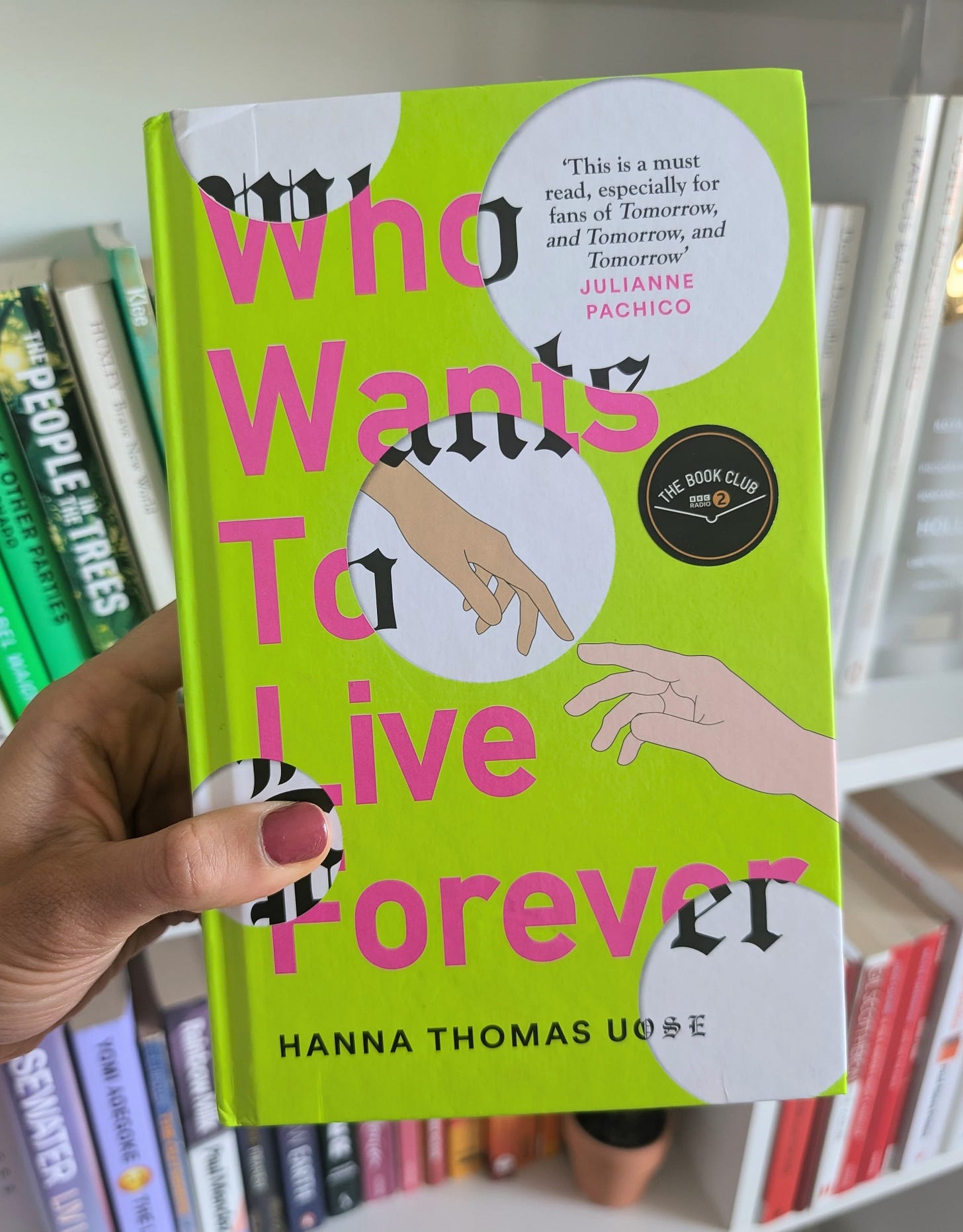
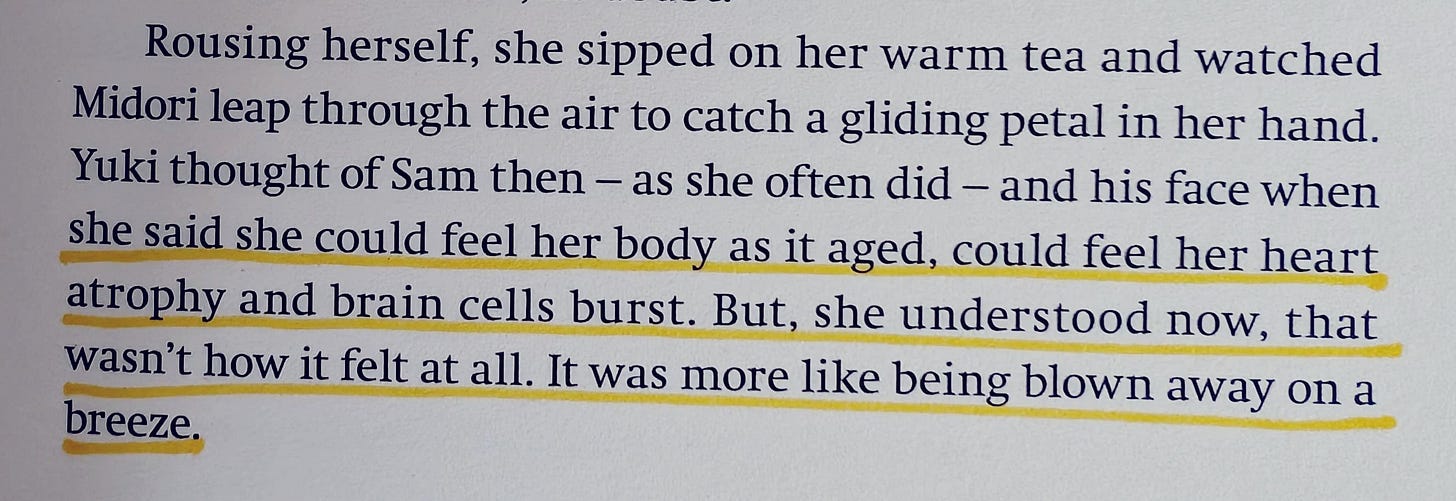
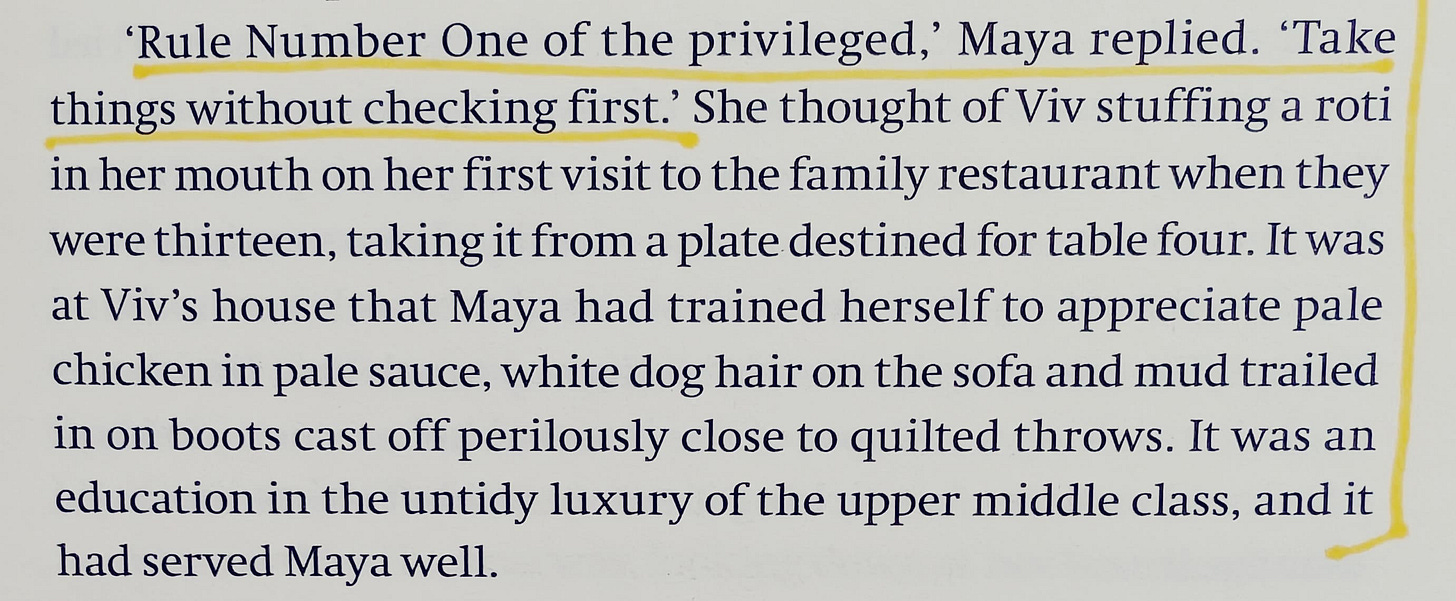
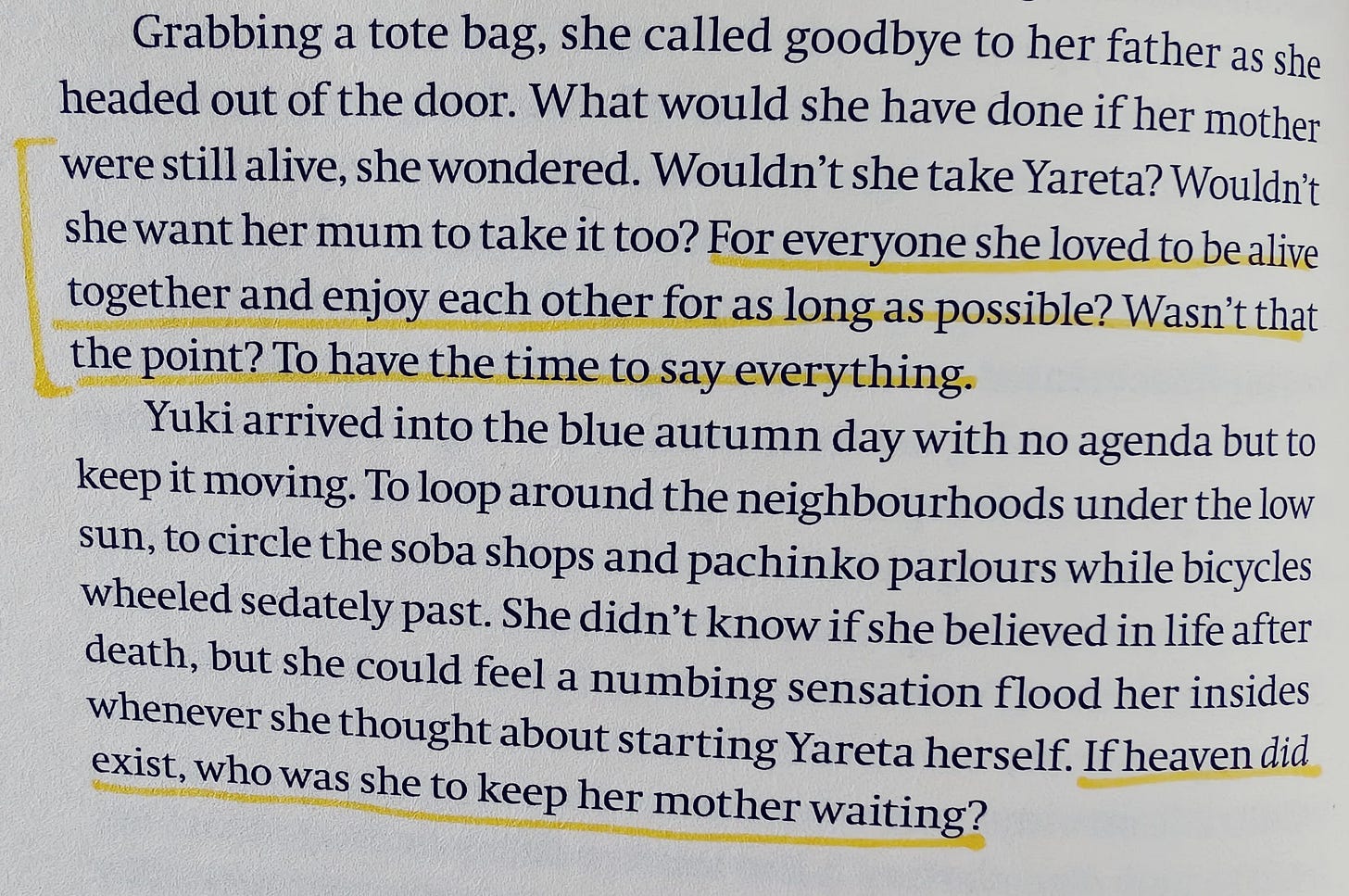

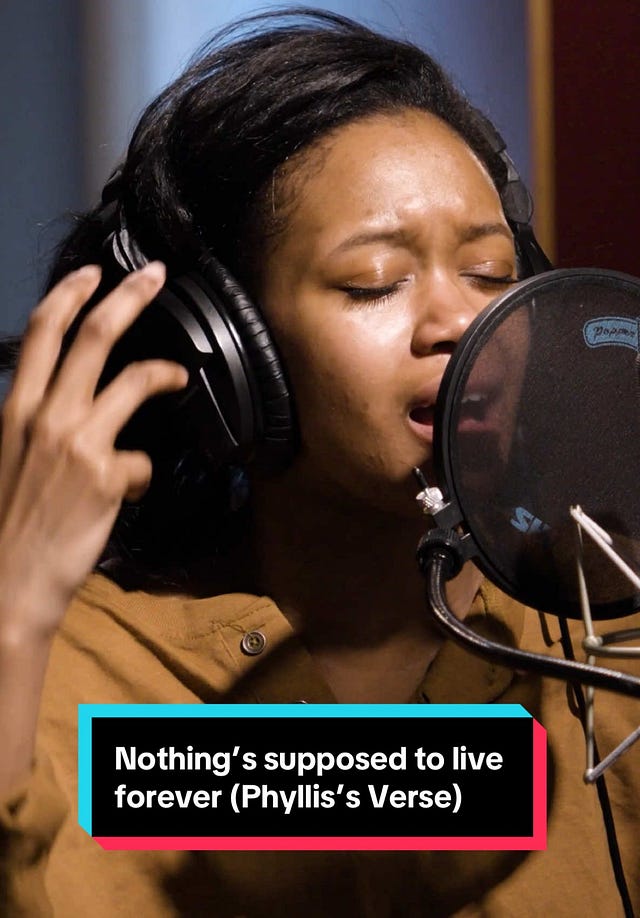




"If you get to see all those you’ve lost when you cross over to the other side, I’m in for one hell of a party." Yep, same here (and 10 years sober). Beautifully-written essay, congrats on the anniversary.
Congratulations on your anniversary 💕💕💕